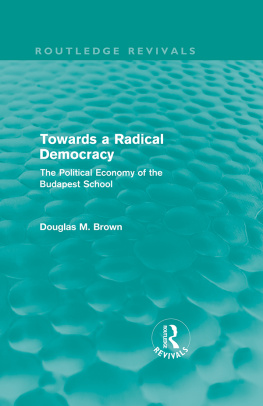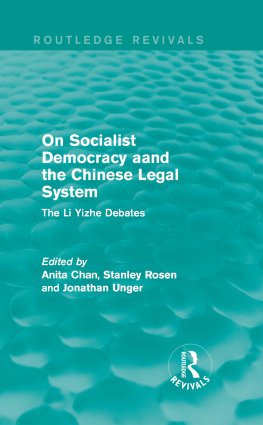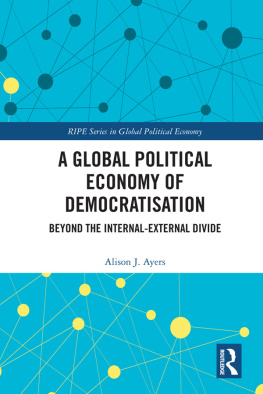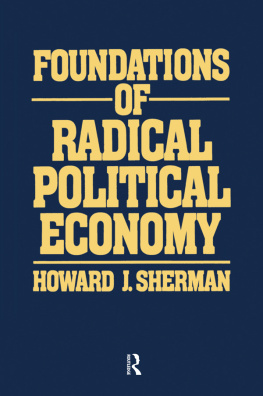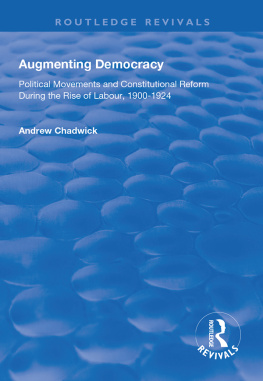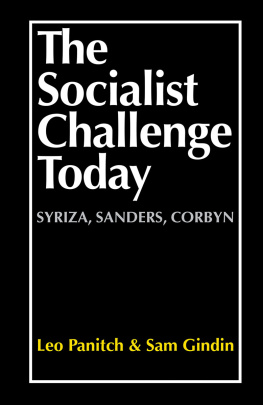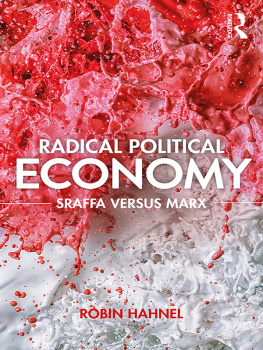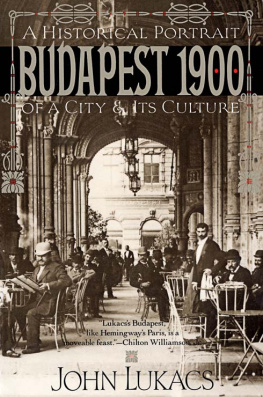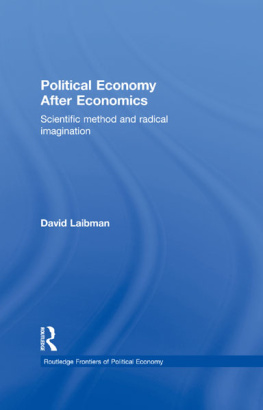Routledge Revivals

Towards a Radical Democracy
Originally published in 1988, this is the first systematic account of the writings of Hungarian dissidents and former students of George Lukacs, collectively known as the Budapest School. Dr. Brown demonstrates the importance of their work in contributing to a logically consistent yet realistic theory of socialist mixed economies, and genuine radical democracies. The Budapest Schools model of radical democracy represents a critique of both industrial capitalism and existing socialist systems, with immediate political as well as philosophical importance. Dr. Brown is particularly concerned to draw out its significance for the practical realities of political economy, and the logical implications for desirable reform of Western mixed economies.
Towards a Radical Democracy
The Political Economy of the Budapest School
Douglas M. Brown

First published in 1988
by Unwin Hyman Ltd.
This edition first published in 2011 by Routledge
2 Park Square, Milton Park, Abingdon, Oxon, OX14 4RN
Simultaneously published in the USA and Canada
by Routledge
270 Madison Avenue, New York, NY 10016
Routledge is an imprint of the Taylor & Francis Group, an informa business
Douglas Brown 1988
All rights reserved. No part of this book may be reprinted or reproduced or utilised in any form or by any electronic, mechanical, or other means, now known or hereafter invented, including photocopying and recording, or in any information storage or retrieval system, without permission in writing from the publishers.
Publishers Note
The publisher has gone to great lengths to ensure the quality of this reprint but points out that some imperfections in the original copies may be apparent.
Disclaimer
The publisher has made every effort to trace copyright holders and welcomes correspondence from those they have been unable to contact.
A Library of Congress record exists under LC Control Number: 87018804
ISBN 13: 978-0-415-60879-4 (hbk)
TOWARDS A RADICAL DEMOCRACY

The Political Economy of the Budapest School

TOWARDS A RADICAL DEMOCRACY

The Political Economy of the Budapest School

DOUGLAS M. BROWN
Northern Arizona University

Douglas Brown, 1988
This book is copyright under the Berne Convention.
No reproduction without permission. All rights reserved.
Published by the Academic Division of
Unwin Hyman Ltd
15/17 Broadwick Street, London W1V 1FP, UK
Allen & Unwin Inc.,
8 Winchester Place, Winchester, Mass. 01890, USA
Allen & Unwin (Australia) Ltd,
8 Napier Street, North Sydney, NSW 2060, Australia
Allen & Unwin (New Zealand) Ltd in association with the Port
Nicholson Press Ltd,
60 Cambridge Terrace, Wellington, New Zealand
First published in 1988

British Library Cataloguing in Publication Data
Brown, Douglas, 1947
Towards a radical democracy: the political economy of the Budapest school.
1. Mixed economy
I. Title
330.126 HD3611
ISBN 0-04-330408-7

Library of Congress Cataloging in Publication Data
Brown, Douglas, 1947
Towards a radical democracy: the political economy of the Budapest school/Douglas Brown.
Bibliography: p.
Includes index.
ISBN 0-04-330408-7 (alk. paper)
1. Socialism and society. 2. Mixed economy Hungary. 3. Hungary-Economic conditions 1945 I. Title.
HX542.B7167 1988
335.434 dc19

Typeset in 10 on 12 point Sabon by Computape (Pickering) Ltd and printed in Great Britain by Billing and Sons, London and Worcester
For My Parents
Betty Thoma Brown and Melvin R. Brown
whose genuine love for humanity is the inspiration for this book
Contents
There are numerous people to whom I owe an immeasurable debt for helping me to complete this book. I want to thank, first, Ron Stanfield for his critical and very creative role in bringing the book to fruition. When we initially discussed the Budapest Schools writings it was he who commented that their work suggests a defence of the mixed economy. It was with this pivotal insight that I began to view the mixed economy defence as an organizing principle. In addition, his thorough reading of the manuscript yielded invaluable insights and constructive suggestions. I owe much to his creative talent for synthesizing diverse ideas. I owe much to his friendship and his commitment to a liberated world. Secondly, I want to thank Agnes Heller and Ferenc Feher for their helpful comments and supportive interest in this project.
I also want to thank Chuen-mei Fan, Bob Keller and Dave Crocker at Colorado State University. Each of them read the manuscript and provided me with much needed suggestions and commentary. Cheryl Tyler typed the original manuscript, and I want to express special thanks to her for her help and co-operation. In addition, Toni Ohrn did the word processing for the final draft, taught me how to use a computer and most importantly offered me her friendship and emotional support without which this probably would not have been completed. For this I owe her heartfelt thanks. I also want to thank the Northern Arizona University Business College for supporting me in completion of the final draft, and I want to thank Linda Stratton, who helped me prepare this draft. Lastly, I will remain forever indebted to my wife, Cheryl, and my children, Mathieu and Sierra. It is an indebtedness that I genuinely cherish, because as they have been there for me, I too want to return the kind of care and support they have shown me.
Douglas M. Brown
The Budapest School is a group of Hungarian scholars and dissidents, formerly students of the Marxist philosopher Georg Lukacs. The major figures in this grouping are Ferenc Feher, Agnes Heller, Georg Markus and Mihaly Vajda. The commonly used appellation the Budapest School is used here to refer to this group of writers. Although I have avoided the issue of whether the Budapest School constitutes a school of thought, I have analysed the writings of these individuals with the understanding that they share a common neo-Marxian heritage. Given their differing circumstances and interests, especially within the last ten years, to argue that they constitute a school of thought makes little sense. However, this study argues that within the Budapest Schools neo-Marxism there exists a defence of a mixed economy characterized by both planning and markets as well as by mixed forms of property ownership. I have attempted to provide an interpretation of the Budapest Schools work that draws from key themes and issues they have developed. It is by no means the only or the correct interpretation, but one that I would hope contributes to the overall objective of, as Agnes Heller states, making the world a home for humanity.
Next page
